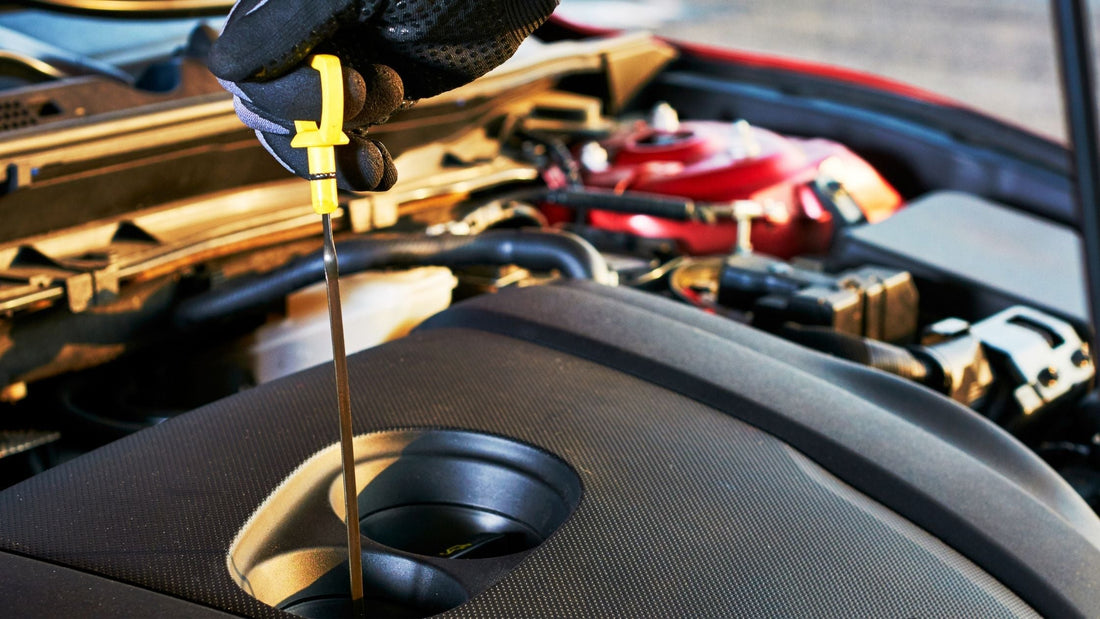
How To Check & Choose Your Car Engine Oil
Keeping your car's engine in top shape involves more than a casual glance under the bonnet. Regularly checking and keeping your engine oil topped up is a fundamental aspect of vehicle maintenance. In this concise guide, we'll walk you through the essential steps of checking your oil, selecting the right type, and understanding why changing your oil is crucial (Oil changes are included in a vehicle service).
How Do I Check My Engine Oil Level?
- Park on a level surface, turn off the engine, and wait a few minutes.
- Open your bonnet & Locate the oil dipstick.
- Pull it out, wipe it clean, and reinsert it fully.
- Pull it out again and check the oil level, ensuring it falls between the minimum and maximum marks.
- If the level is halfway between the minimum and maximum levels on the dipstick you don’t need to add any oil.
- If it’s below halfway, you may want to add some oil. If it’s below the minimum mark, you need to add oil.

What Engine Oil Does My Car Need?
Selecting the correct engine oil is paramount for optimal performance. Refer to your vehicle's manual for recommended viscosity and performance standards, commonly denoted by designations like "10W-40" or "5W-30."
You can also check your vehicle service book, this will tell you what oil has been used in your previous car services.
What Colour Should My Engine Oil Be?
When you buy a new bottle of oil, it will be a clear, golden colour. When it’s in an engine, the oil will quickly change into a dark brown colour. If your engine oil is a milky colour this may signify a problem in your engine chamber.
What Do The Numbers On Oils Mean?
- The first number (e.g., 10W) represents the oil's viscosity in cold temperatures, with lower numbers indicating thinner oil.
- The second number (e.g., 40) signifies viscosity at operating temperatures, with higher numbers indicating thicker oil.

Why Should I Check My Engine Oil?
- Lubrication: Engine oil lubricates moving parts, reducing friction and wear. Regular checks ensure optimal lubrication, preventing premature engine damage.
- Temperature Control: Oil helps regulate engine temperature by dissipating heat. Regular checks are crucial for maintaining effective temperature control.
- Contaminant Removal: Over time, oil accumulates contaminants that can harm the engine. Regular checks help monitor impurity levels, ensuring a clean and efficient engine.
- Fuel Efficiency: Fresh, clean oil contributes to better fuel efficiency, leading to a smoother, more efficient ride.
Regularly checking and choosing the right engine oil is a simple yet impactful way to keep your vehicle in top condition. Follow these guidelines, adhere to your car manufacturer's recommendations, and ensure smooth and efficient performance.
If your vehicle requires servicing, click here to schedule an appointment online at a time and date that accommodates your schedule.

